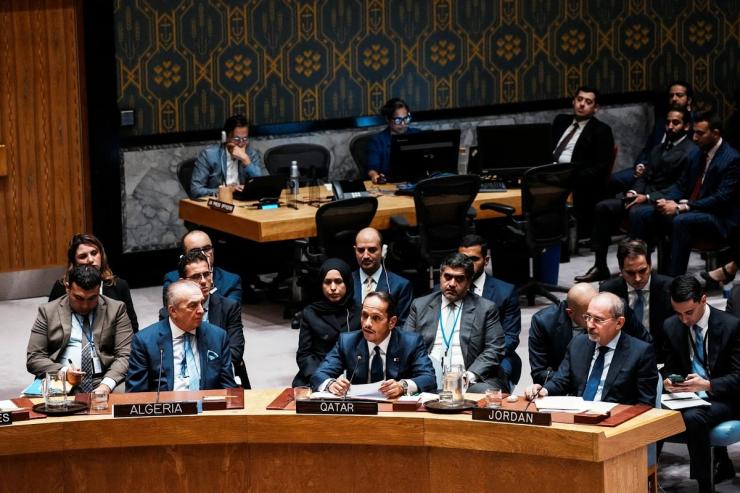Hadley’s view
By refusing to reprimand Israeli Prime Minister Benjamin Netanyahu, US President Donald Trump is creating a trust deficit with the Gulf that will be difficult to walk back. Judging by the very public reaction to the Doha strike — and my own conversations with regional leaders — they see Israel’s move as a major breach.
That the strike happened days before the five year anniversary of the Abraham Accords, Trump’s greatest foreign policy achievement, is notable. The normalization with Israel, which the president expected to expand during his term, is at risk. Netanyahu’s threats to annex the West Bank, and his statement that Israel will never allow the Palestinians to have a state, have undermined the spirit of the agreement. And repeated attempts by the administration to sell the public on a “Gaza Riviera” rub salt in the wound.
When I talked to Trump administration officials in the days after Israel’s strike on Doha, most took it for granted that because Gulf Arab leaders abhor Hamas, Hezbollah, and the Muslim Brotherhood, they were willing to come under fire from Iranian missiles or Israeli strikes to weaken the Islamists. This may have been a serious and dangerous miscalculation.
For years Gulf countries have been forced to question America’s security guarantees. From George W. Bush’s invasion of Iraq to Barack Obama’s infamous “pivot to Asia,” each successive administration has given the Gulf reason to wonder what exactly is Washington’s plan for the Middle East, and if they should be a part of it. They too have options to rebalance, and China is a willing partner.
Israel continues to prove itself reckless and destructive, and the administration shouldn’t be under the illusion that Gulf leaders will forget America’s role in the chaos. From Biden to Trump, the US government has actively funded Israel’s war machine, giving the green light to Netanyahu’s government which is making the region less safe and perhaps rendering the Jewish state’s long-term viability inviable.
Earlier this year, I asked if the chaos we’ve seen in the region since Trump’s election is his doctrine: shake up the cats in the bag so they’re too busy mutilating each other to notice who put them there. With Israel striking Doha — the city the US and Israel chose to host negotiations with Hamas — the theory seems more plausible than ever.
While Washington should be focused on winning the AI race with China and partnering with Gulf countries to fuel the data centers necessary to do it, it’s being dragged repeatedly into the
politics of the past. Trump’s policy to back every Israeli aggression may create the deterrence Netanyahu seeks in the short term, but it’s guaranteed to one day unite the Muslim world against the West.
Hadley Gamble is chief international anchor at IMI — the Abu Dhabi media company behind The National and Sky News Arabia — and a former anchor with CNBC covering energy, politics, and business.
In this article:
Room for Disagreement
The Israeli strike was a course correction for US foreign policy that has elevated Doha from a backwater to a global mediation center, Lee Smith writes in the conservative, pro-Israel Tablet Magazine. Trump issued an ultimatum to Hamas to release all the hostages, and the group didn’t comply, resulting in the bombing of their compound. The signal from Trump to Qatar is that it isn’t under Washington’s protection — it’s there to do US bidding.
“The reason we have an air base in Qatar is not so you can balance us against Iran but so we can kill those in your region who threaten American peace and prosperity. You’re hosting people who are holding our people hostage, along with Israelis, who are our allies. You should’ve gotten the message and leaned on the terrorists you keep on your payroll to take our deal. You didn’t, so we had your guests targeted on your doorstep,” Lee writes.
Notable
- Gulf states are rallying around Qatar, but their response to Israel will be limited to diplomatic and economic measures, both of which offer few options to address the threat posed by Israel, CNN reports.
- Israel’s military achievements in Gaza, Lebanon, and Iran haven’t translated into political success, giving an opening to Arab countries to forge a solution that will create a Palestinian state, peace for Israel, and the weakening of extremists, Abdulrahman al-Rashed, chairman of Al Arabiya’s editorial board, writes in Asharq Al-Awsat.


